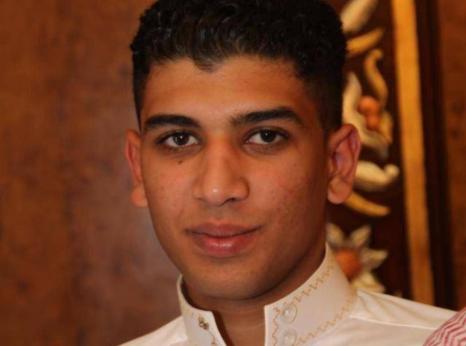Saudi Arabia: Two Young Men At Imminent Risk Of Execution

Amnesty International has credible information that the Supreme Court secretly upheld the death sentences of Abdullah al-Derazi and Jalal Labbad without notifying their families or lawyers. In the absence of transparent information around judicial processes in Saudi Arabia, particularly in death penalty cases, families only find out about the fate of their loved ones through the media. On 16 October 2023, the UN special rapporteur on summary, extrajudicial or arbitrary executions expressed concern at the imminent execution of Abdullah Al-Derazi. The two young men could be put to death as soon as the King ratifies their death sentences.
The Saudi Human Rights Commission told Amnesty International in a May 2023 letter that ‘the application of the death penalty on juveniles for ta’zir crimes has been completely abolished’. Ta’zir crimes, which both young men have been convicted of, are crimes for which the death penalty is not mandated under Islamic law. The use of the death penalty against people who were under 18 years of age at the time of the crime they have been convicted of is strictly prohibited under the Convention on the Rights of the Child, which Saudi Arabia has ratified.
Abdullah al-Darazi was 17 at the time of the crime. He was arrested on 27 August 2014 and sentenced to death by the Specialized Criminal Court (SCC) on 20 February 2018 for involvement in “riots in al-Qatif, and chanting slogans against the state and causing chaos”, “participating in a terrorist network … which aims to disrupt internal security”, and “attacking security officials with Molotov cocktails”. He told the court that he was held in pretrial detention for three years and, during which he had no access to legal representation. According to his court documents, which Amnesty International has reviewed, he told the judge: “I demand an independent medical evaluation to prove the torture that I have been subjected to … The records of the Dammam investigations unit hospital prove that I continue to be treated as a result of beatings on my ears during my interrogation”. The court failed to investigate his torture allegations, and instead on 8 August 2022, an appeals court upheld his death sentence.
Jalal Labbad was between 15 and 17 years old at the time of the crime. He was arrested on 23 February 2019 and sentenced to death by the SCC on 31 July 2022 for “participating in protests and riots, and rebelling against the public order, and participating in chanting and raising slogans that insult and incite against the rulers during funerals of individuals killed by security forces” and “Participating in a terrorist network that aims to corrupt the state through: kidnapping and murdering a judge; shooting at security officials … and throwing Molotov cocktails at security officials”. According to court documents reviewed by Amnesty International, he told the court he was detained for almost three years in pretrial detention and subjected to physical and psychological torture including “nine and a half months in solitary confinement in a small and tight room”, “severe beating” and “electrocuting my entire body, and particularly my genitals”. He told the court that he had been repeatedly denied medical treatment. An appeals court upheld Labbad’s sentence on 4 October 2022.
Saudi Arabia is one of the world’s top executioners. Between January and October 2023, the Saudi authorities have already executed 112 people. In 2022, the kingdom executed 196 people, the highest number of annual executions that Amnesty International has recorded in the country in the last 30 years.